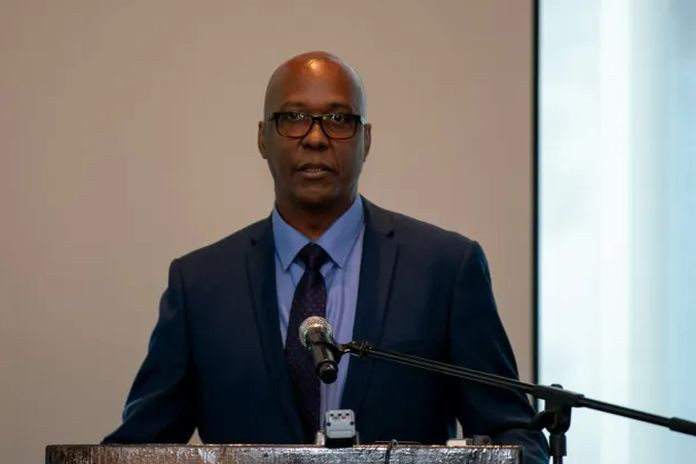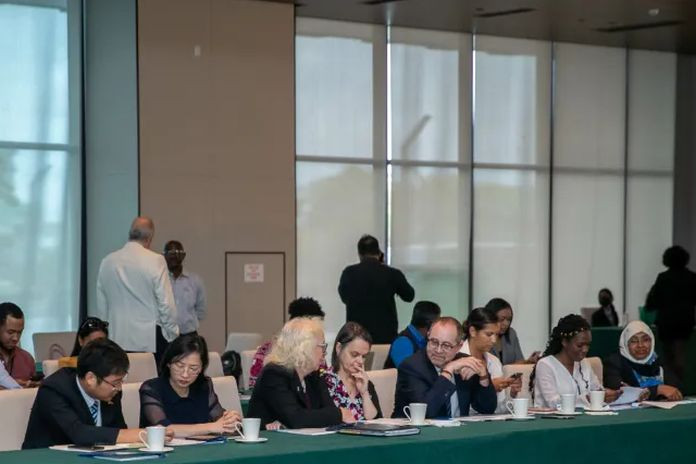GEORGETOWN, Guyana, (DPI) – The ‘One Health’ agenda will significantly help to advance Guyana’s food security efforts, even as the government continues to accelerate its food agenda. The initiative is a collaborative multi-sectoral and transdisciplinary approach at the local, regional, national, and global levels, aimed at achieving optimal health outcomes.
This means that the approach has a close connection with the nation’s agriculture sector, which is a priority of the PPP/C government, also made efforts to create a strong national health strategy, to harmonise and advance the country’s food chain towards meeting international standards.
Advisor on CARICOM’s Agri-Food System, Dr Richard Blair on Monday, underscored that there can be no food security without safe food, noting that food and nutrition are paramount in health discussions.

“The one health agenda is central for advancing Guyana’s massive food production drive. Trade would become increasingly important…everything that we eat comes from agriculture,” he stated.
Dr Blair emphasised that the one health process will provide services to bolster the country’s food production and enhance opportunities for exports.
“You want to reduce imports; it requires that you increase production. Soya and corn are very important ingredients for feed for livestock. Poultry is one of the most important proteins for sources in the Caribbean and Guyana. So, where does all of that bolstered production go? We eat some and some will have to be exported,” Dr Blair explained.
Guyana remains dedicated to preventing and limiting the spread of zoonotic diseases while safeguarding the country’s food security.
The Guyana Livestock Development Authority (GLDA) and the United Nations Food and Agriculture Organisation (FAO) recently concluded a three-day simulation exercise on High Pathogenicity Avian Influenza (HPAI) to strengthen Guyana’s emergency response capabilities to zoonotic illnesses.
The concept of one health could contribute positively by promoting traceability and strengthening standards.
“We are really aiming at a collaborative, multisectoral process in assessing Guyana’s capacities to prevent, detect, and rapidly respond to public health risks,” the agriculture advisor stressed.
He disclosed that the ministry of agriculture is on board and will continue to take its responsibility seriously, as a key partner in this collaborative platform in ensuring the success of the one health initiative.
With all of its natural resources, Guyana continues to lead in agriculture diversification, which is led by president, Dr Mohamed Irfaan Ali, to reduce the Caribbean’s high food import bill by 25 percent by the year 2025.
Meanwhile, the Food and Agriculture Organisation (FAO) Representative in Guyana, Dr Gillian Smith lauded the initiative, noting that some of the work has already begun.
“We are very happy to have been working with GLDA on the laboratory, laboratory assessments, and the veterinary services assessment. And we will continue to be here to work along with you,” the FAO representative stated.
By promoting collaboration and coordination across governance frameworks of human, animal, plant, and environmental health programmes, one health is a policy that seeks to avoid and prepare for present and future health concerns at the human-animal-environment interface.





